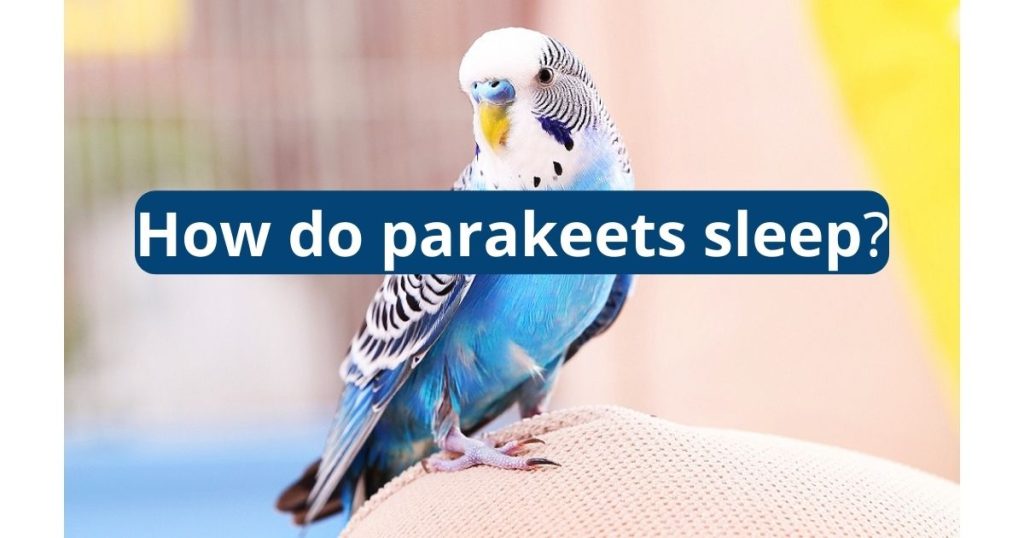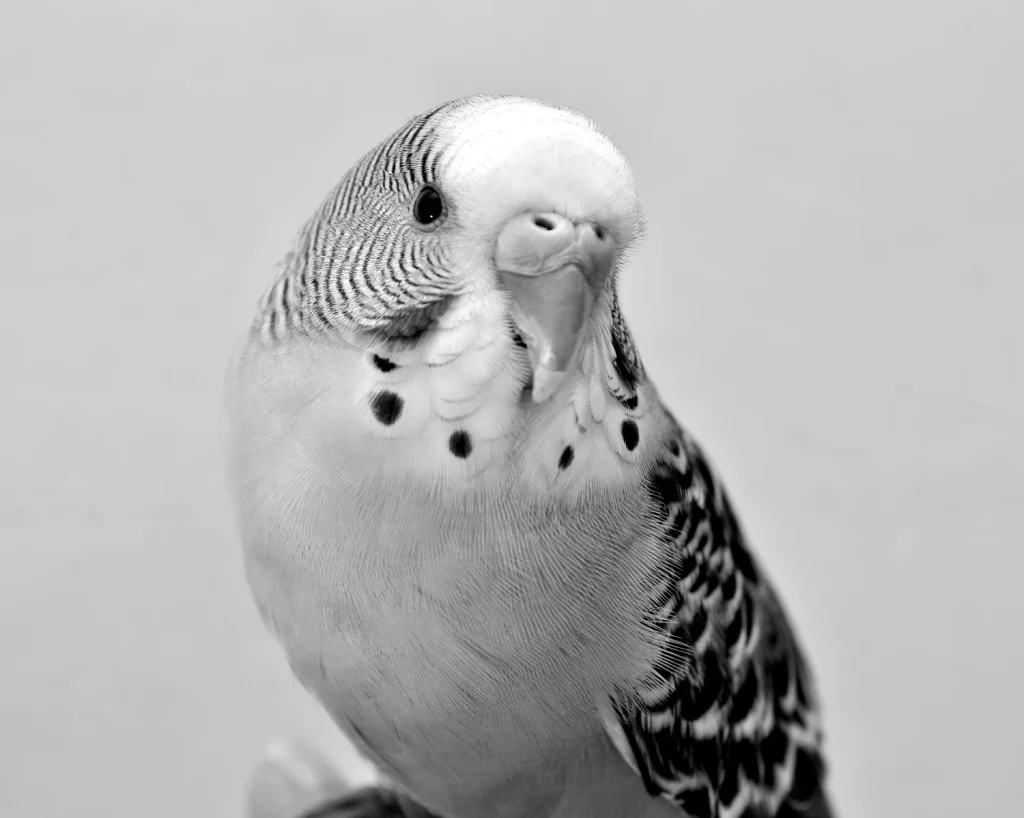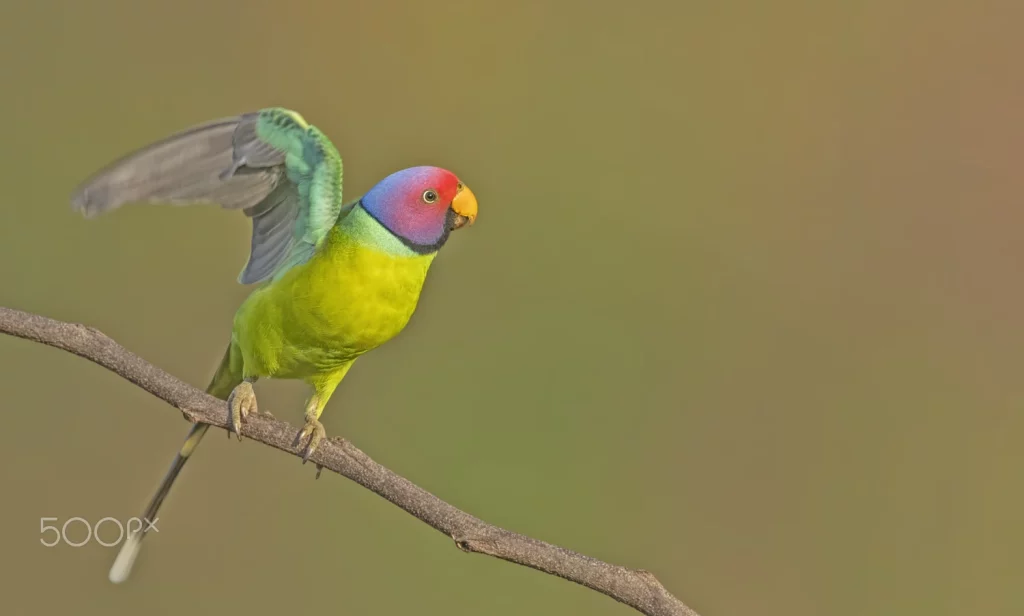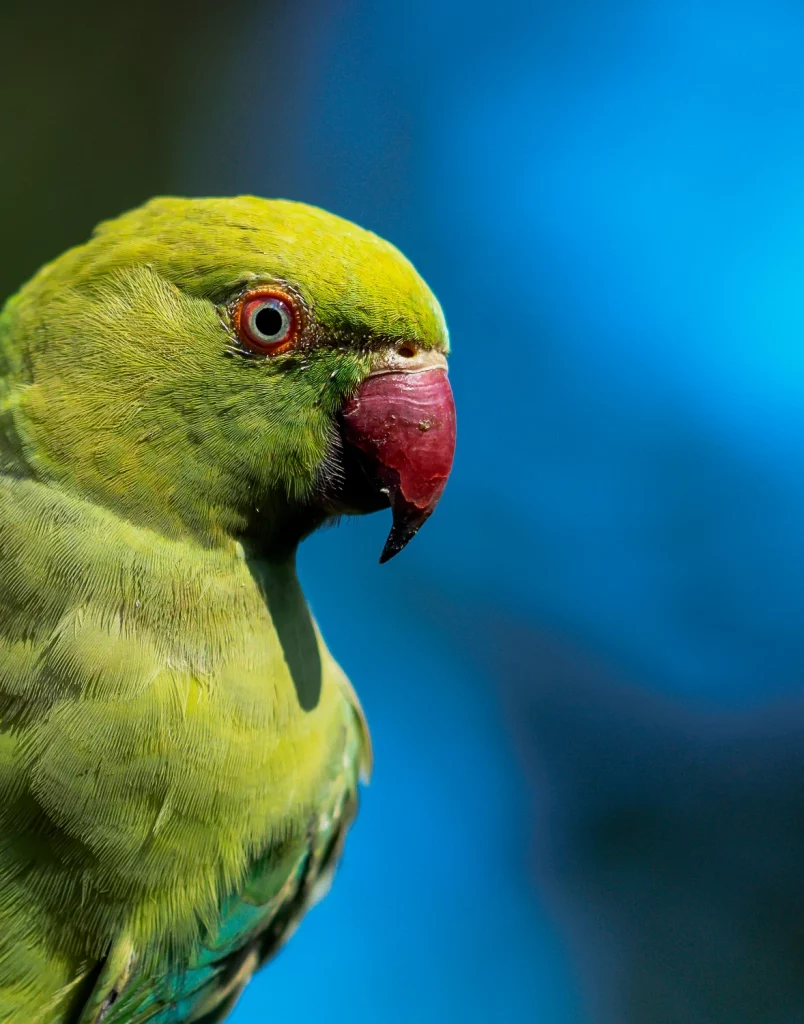How Do Parakeets Sleep?

Sleep is an important part of your parakeet’s daily life. A good night’s rest will improve their mood, behavior and health. Like us, budgies need a quiet and dark place to tuck in for the night. Providing the right environment will make it easier for them to fall asleep at night.
Darkness
Parakeets like to sleep in darkness because it mimics their natural habitat. They are native to tropical areas that have 12 hours of daylight and 12 hours of dark. In the wild, this cycle helps them stay alert and awake during the daytime when predators may be lurking. When it’s time to sleep, the dark will signal that they should settle down and rest.
When parakeets are sleeping in the dark, they will usually keep their eyes open because they want to be sure that no predators are nearby. They also have sharp vision that they use to hunt and catch their prey. This is because their eyes have many blood vessels that provide a luminous quality in the dark.
Sometimes when parakeet owners notice that their pet is acting strangely at night, they assume that the bird is afraid of the dark. However, this is not always the case. These strange behaviors could be a result of the bird’s instinctive behaviors or an indication that they are feeling stressed or uncomfortable.
To help your parakeet relax and get a good night’s sleep, try dimming the lights in their cage at dusk. You can also use a small night light to put your budgie at ease. The best thing to do is to let your budgie adjust slowly to the dark so that they will not feel scared or panicked.

Perches
Parakeets have a special foot structure that allows them to grab onto thin twigs and branches without falling off. This is why wild parakeets sleep in groups, huddled together for warmth and protection. They also cover their feet when they settle for the night to prevent them from losing heat through their toes.
Just like humans, it is important for parakeets to get a good amount of uninterrupted restful sleep. If a bird is constantly startled by loud noises or blinking lights, they may not get the restful sleep they need to feel healthy.
It is also helpful to provide a perch for a parakeet to sleep on, especially if it is made of natural, untreated wood. A wooden perch can help a parakeet sleep better because it will be quieter, more insulated, and safer from predators. It is important to keep other animals away from the cage or wooden perch where a parakeet is sleeping because they might disturb it.
If a parakeet is not getting enough sleep, it can become lethargic and lose its appetite. It will also show other signs of depression such as feather plucking and aggression. If your parakeet is showing signs of being lethargic, it is important to take them to the vet right away as it could mean that they are sick.

Light
As with humans, parakeets need darkness to get a good night’s sleep. In the wild, they roost in trees at night and are used to sleeping in the dark. Covering your parakeet’s cage will help to create a dark, quiet environment that mimics their natural habitat and will allow them to get the restful sleep they need.
Parakeets can be easily startled while they are sleeping, so you will need to be careful not to disturb them too much. Be sure to place their cage in a quiet area away from foot traffic and bright lights. You can also try placing a curtain or blanket over their cage for a more calming effect.
In the wild, parakeets use their zygodactyl feet to grip onto thin twigs and branches so they can sleep on them without falling off. They can also tuck their heads into their wings to stay warm and prevent loss of body heat. This sleeping position is especially important during colder nights.
While it is normal for a healthy parakeet to take occasional naps throughout the day, if they begin to nap more frequently than usual, this could be a sign that they are not getting enough sleep at night. Insufficient sleep can cause many health and behavioral problems in birds, including irritability, inactivity, and a general lack of energy.

Temperature
Similarly to humans, parakeets need a comfortable temperature in order to get a good night’s sleep. If they are kept in temperatures that are too cold, this can cause health problems and even death for the bird.
Ideally, it is best for parakeets to be kept in an environment that is warm during the day and cool at night. Leaving the heating on at night is one way to ensure this, but it may be expensive depending on where you live.
In terms of what time it is dark, this is very important to parakeets for a number of reasons. As diurnal animals, the presence of darkness signals to their brains that it is nighttime and that it is time to rest. This is why it is important to cover their cages in the evening so that light can’t reach them and disrupt their sleep.
As with most animals, parakeets can be easily startled during their sleep by noises or flashing lights. These can prevent them from getting a good night’s rest, which can negatively impact their day-to-day routine. If you can, try to keep the noise levels down in the room where your parakeet sleeps, and try not to cover their cage too much. This can make it too dark for them to sleep comfortably.





